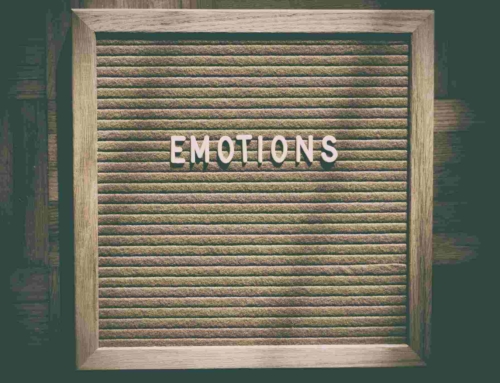 For people with anger disorders, severe emotional dysregulation frequently follows feelings of anger. For these people, irritation and frustration can quickly devolve into an all-out rage.
For people with anger disorders, severe emotional dysregulation frequently follows feelings of anger. For these people, irritation and frustration can quickly devolve into an all-out rage.
However, for most people, anger is a natural emotion that comes and goes without causing much damage or disruption to their lives. It may be difficult to process or express in healthy ways, but anger usually doesn’t lead to intense emotional dysregulation.
While different types of anger disorders all present with varied symptoms and have different causes, dysfunctional rage is the one unifying hallmark of these disorders. Uncontrolled rage can lead to difficulties in many areas of a person’s life. So, what kind of help is available if you or a loved one struggles with anger? How can you create a healthier, less volatile relationship with your negative emotions?
This article aims to help you understand the different types of anger disorders that may lead to uncontrolled rage. It will also discuss the many benefits of counseling for each of these disorders. With the assistance of a qualified Christian counselor, it is possible to learn methods to control your anger, better regulate your emotions, and achieve an overall better quality of life. Read on to find out how we can support you on your mental and emotional health journey.
What does healthy anger look like?
If we as Christians believe that God carefully crafted every part of our bodies, souls, and minds, then we also must believe that He designed each of our emotions to have a purpose. Though it may be easier to lump all negative emotions together and label them as “bad” or “unhealthy,” every one of your feelings exists to tell you something about who you are, what you are doing, or what is happening around you. Even anger can be healthy when you know what to do with it.
Everyone feels angry from time to time. You may feel anger toward a person, situation, or even yourself. The primary difference between healthy anger and destructive anger is how you choose to respond when you feel the heat rising inside. Instead of lashing out or repressing their feelings, emotionally healthy people tend to pause, permit themselves to be upset, and then try to understand where the anger is coming from rather than push away the discomfort.
When you allow yourself to experience all your emotions, including anger, without becoming overwhelmed or reacting to them, you are less likely to respond to these feelings in destructive ways. You also increase your ability to feel safe even amid difficulty. It is possible to feel anger and even speak up for yourself when you’ve been wronged without losing control.
When does anger become a problem?
 Unlike healthy anger, toxic or unhealthy anger is characterized by a lack of control and, often, a lack of personal reflection. When your anger is making decisions for you, overwhelming you, or otherwise running the show, you may behave in ways of which you aren’t proud or that hurt others. If feelings of rage are causing you to think or act in ways that put you or others in danger, it’s time to seek help.
Unlike healthy anger, toxic or unhealthy anger is characterized by a lack of control and, often, a lack of personal reflection. When your anger is making decisions for you, overwhelming you, or otherwise running the show, you may behave in ways of which you aren’t proud or that hurt others. If feelings of rage are causing you to think or act in ways that put you or others in danger, it’s time to seek help.
It may also be time to speak with a qualified counselor about your anger if you feel like rage has become your default reaction to every negative experience in your life. Sometimes, your past experiences can teach your brain and body that sadness, disappointment, embarrassment, guilt, and so on are unsafe emotions. In these instances, anger may feel like a safer, less vulnerable response to pain or difficulty. Speaking with a counselor could help you address these issues.
What are the most common types of anger disorders?
Many mental health conditions can cause symptoms of irritability, emotional dysregulation, difficulty controlling impulses, or excessive anger. However, the two most commonly diagnosed types of anger disorders are Intermittent Explosive Disorder and Oppositional Defiant Disorder. Both of these disorders are characterized by excessive anger and aggressive or destructive behavior.
Intermittent Explosive Disorder (IED)
One of the two most common types of anger disorders, IED is characterized by impulsive episodes of extreme anger that are out of proportion with the events that trigger the anger. These episodes and outbursts may present as temper tantrums, road rage, domestic abuse, verbal assault, physical fights, or other aggressive behaviors. Left untreated, IEDs can cause significant damage to the life of the sufferer and the lives of the people close to them.
The symptoms of Intermittent Explosive Disorder may include:
- Impulsivity
- Irritability
- Aggression
- Chronic anger
- Explosive outbursts
- Hair-trigger temper
Oppositional Defiant Disorder (ODD)
Another of the most common types of anger disorders, ODD is a condition typically only diagnosed in children but that may continue into adulthood if left untreated or unidentified. Characterized by chronic anger, aggression, irritability, defiance, and vindictiveness, Oppositional Defiant Disorder can lead to problems at home, school, work, and in relationships. Different than typical childhood behavior problems, ODD requires intervention and treatment.
The symptoms of Oppositional Defiant Disorder may include:
- Chronic anger and frequent outbursts
- Irritability
- Constantly feeling argumentative or oppositional
- Defiance towards authority figures
- Patterns of disruptive, disrespectful, antagonistic, or vindictive behavior
- A habit of blaming others for mistakes and misdeeds
Other conditions that may cause anger issues.
 While IED and ODD are the two mental health disorders most frequently referred to as “anger disorders,” many other conditions can cause symptoms of increased anger, irritability, and even rage. Mental and emotional health conditions that interfere with a person’s ability to regulate emotion cause issues with extreme anger. Depression, anxiety, grief, addiction, and unresolved emotional trauma can all cause you to feel out of control when anger hits.
While IED and ODD are the two mental health disorders most frequently referred to as “anger disorders,” many other conditions can cause symptoms of increased anger, irritability, and even rage. Mental and emotional health conditions that interfere with a person’s ability to regulate emotion cause issues with extreme anger. Depression, anxiety, grief, addiction, and unresolved emotional trauma can all cause you to feel out of control when anger hits.
Additionally, bipolar disorder, characterized by alternating periods of extremely elevated and extremely low moods, can be accompanied by increased rage during episodes. Some personality disorders can also include symptoms of anger, rage, and irritability. The best way to determine the root cause of your anger issues is to seek help from a mental health professional.
Can counseling help treat these types of anger disorders?
Speaking with a mental health professional about your experiences with explosive, chronic, or uncontrolled anger is the best step you can take toward recovering from all types of anger disorders. No matter your specific condition, a qualified counselor will work with you to determine an effective therapeutic strategy. If you recognize that you need help and are willing to engage in the work of treatment, counseling may significantly improve your quality of life.
If you suffer from Intermittent Explosive Disorder, your counselor may focus on helping you re-frame the way you
think about your personal history or encourage you to challenge any faulty assumptions that lead to your most explosive episodes of anger. Your counselor might also provide you with new self-regulation and relaxation techniques to help stop episodes before they escalate. The goal is to help you better manage all your emotions, not just anger.
If you suffer from Oppositional Defiant Disorder, your counselor may use some of the same therapeutic strategies mentioned above. However, your counselor will be likely to spend more time working with you on life skills such as building stronger communication skills, developing greater impulse control, and forming healthy habits for coping with stress or frustration. Depending on your age, your counselor may also recommend family therapy or interventions at school.
Whatever the root cause of your anger issues, you don’t have to struggle alone. Your local Christian counselors are all qualified mental health professionals who are willing and able to partner with you on your path to a better, more emotionally regulated life. If you desire to see an improvement in your anger, your relationships, and your overall feeling of well-being, contact us today to book your first appointment with a compassionate Christian counselor.
“Migraine”, Courtesy of Engin Akyurt, Pixabay.com, CC0 License; “Enraged”, Courtesy of Nsey Benajah, Unsplash.com, CC0 License; “Furious”, Courtesy of Tapish, Unsplash.com, CC0 License; “Breakdown”, Courtesy of Aaron Blanco Tejedor, Unsplash.com, CC0 License










